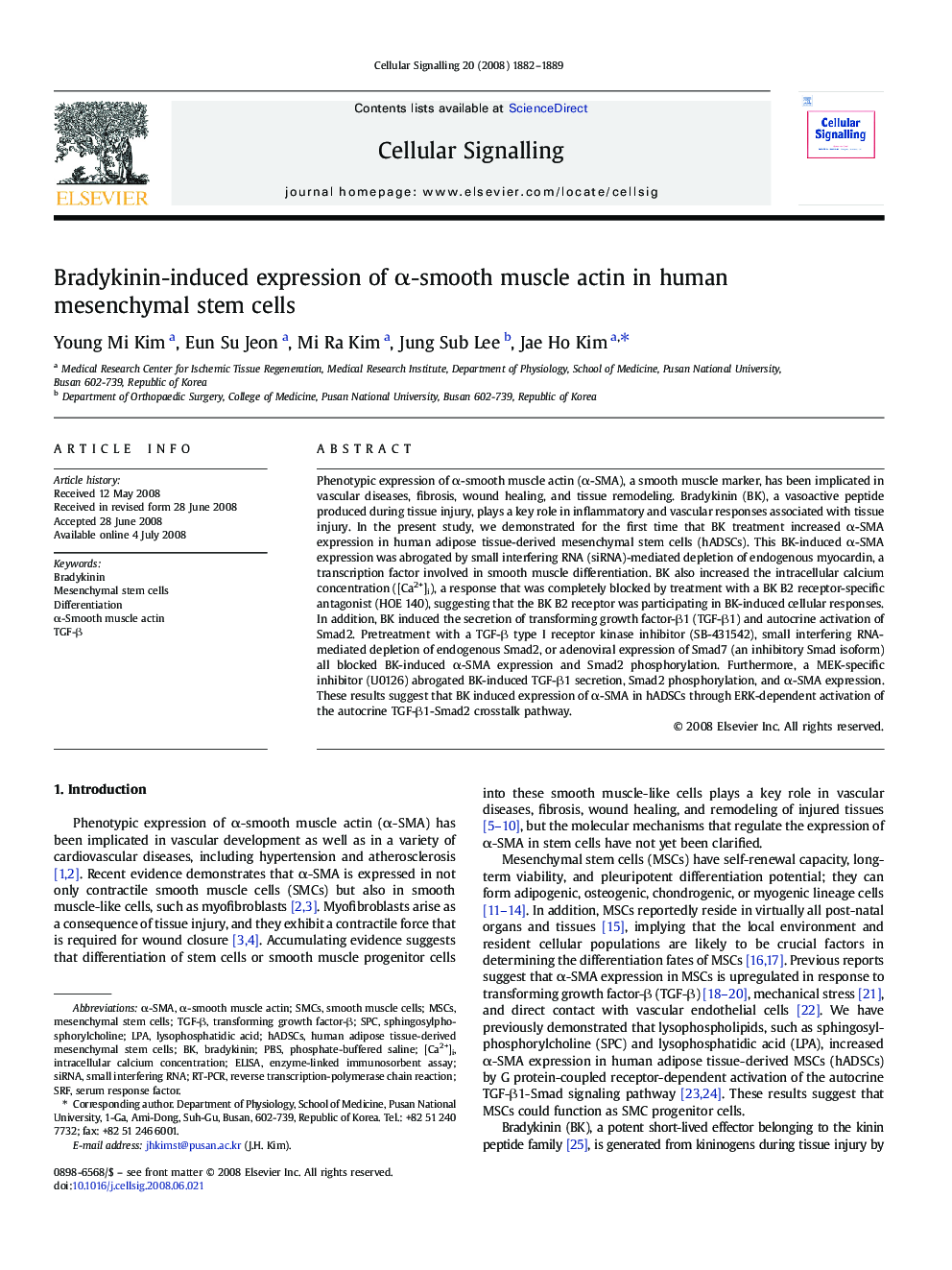| Article ID | Journal | Published Year | Pages | File Type |
|---|---|---|---|---|
| 1964228 | Cellular Signalling | 2008 | 8 Pages |
Phenotypic expression of α-smooth muscle actin (α-SMA), a smooth muscle marker, has been implicated in vascular diseases, fibrosis, wound healing, and tissue remodeling. Bradykinin (BK), a vasoactive peptide produced during tissue injury, plays a key role in inflammatory and vascular responses associated with tissue injury. In the present study, we demonstrated for the first time that BK treatment increased α-SMA expression in human adipose tissue-derived mesenchymal stem cells (hADSCs). This BK-induced α-SMA expression was abrogated by small interfering RNA (siRNA)-mediated depletion of endogenous myocardin, a transcription factor involved in smooth muscle differentiation. BK also increased the intracellular calcium concentration ([Ca2+]i), a response that was completely blocked by treatment with a BK B2 receptor-specific antagonist (HOE 140), suggesting that the BK B2 receptor was participating in BK-induced cellular responses. In addition, BK induced the secretion of transforming growth factor-β1 (TGF-β1) and autocrine activation of Smad2. Pretreatment with a TGF-β type I receptor kinase inhibitor (SB-431542), small interfering RNA-mediated depletion of endogenous Smad2, or adenoviral expression of Smad7 (an inhibitory Smad isoform) all blocked BK-induced α-SMA expression and Smad2 phosphorylation. Furthermore, a MEK-specific inhibitor (U0126) abrogated BK-induced TGF-β1 secretion, Smad2 phosphorylation, and α-SMA expression. These results suggest that BK induced expression of α-SMA in hADSCs through ERK-dependent activation of the autocrine TGF-β1-Smad2 crosstalk pathway.
